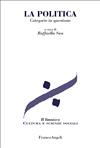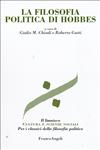
Categorie in questione
Il volume raccoglie una serie di saggi che, da prospettive metodologiche diverse e in costante dialogo col pensiero filosofico-politico del passato, riflettono sugli strumenti, sulle regole, sul linguaggio, sui valori, indispensabili per comprendere, oggi, ed eventualmente correggere, per il futuro, la democrazia.
cod. 629.41




